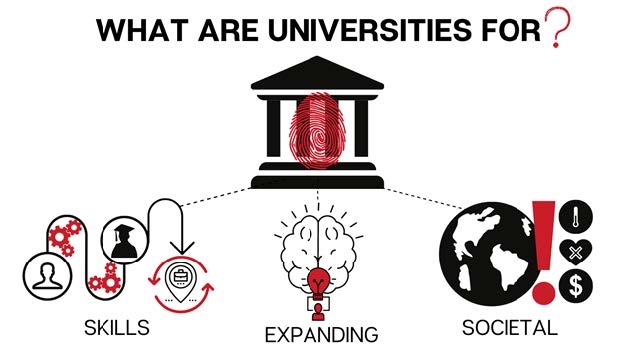Post-secondary education is under pressure to confront several challenges, including decreased public funding, increased pressure to prepare more people with more skills to meet a more demanding labour market, and address pressing social and environmental problems.
In 2022, universities are confronted with the fundamental question: What are universities for? Training graduates to meet the needs of a dynamic and rapidly changing workforce? Expanding the limits of human knowledge? Addressing society’s most pressing problems (e.g., transphobia, global inequalities, poverty, climate emergency)?
These questions are largely rhetorical as the response is clearly all of the above, but they can help frame conversations about the future of teaching and learning within the context of post-secondary education’s identity crisis.
At Carleton, as at other Canadian post-secondary institutions, the COVID-19 pandemic has required courses—and their accompanying support services and resources—to transition to partially and fully online environments. Recent surveys of the Carleton community have shown that while the pivot was not perfect, many students and instructors feel strongly about keeping some of the tools and innovations that emerged.
What’s Working and What’s Not?
As we move toward a post-pandemic reality, we have the opportunity to consider what is working (and what is not) in our teaching and learning programs and practices. How can we better foster big ideas and prepare students for meaningful future careers? How can we best use technologies in our learning environments, encourage action on social issues such as racism and the housing crisis, and/or nurture more flexible learning pathways? How can we forge a path rooted in our unique Carleton history and values?
Of course, we cannot approach these conversations tabula rasa; there is a very real need for Carleton, like many universities in Canada and around the world, to address the financial and moral necessity for universities to stay relevant and engaged, whether by reducing DFW rates, overhauling passive teaching cultures, building stronger ties to community and industry employers, or better tapping into the possibilities of an increasingly digital age to enhance the post-secondary experience and increase the reach of our programs and services to non-traditional students and communities.
Student Success
As we reflect on future directions for teaching and learning at Carleton, we must prioritize care for our students. Student support programs and services foster a smooth transition and supportive environment for incoming students with diverse needs (Ng & Padjen, 2019; Restoule et al., 2013; Smith et al., 2013); however, student success is complex and involves many factors, including a sense of belonging, community and wellness (Kahu & Nelson, 2018; Picton et al., 2018; van der Zanden et al., 2019).
Student success is a campus-wide responsibility, both within and outside the classroom, as we all have a relationship with students and each one of us plays a part in creating a culture of wellness and success for our students. Off-campus, student success can be promoted through partnerships with community, industry, and government partners, both during their studies and after graduation when they enter the workforce. Such partnerships not only strengthen our graduates’ whole person growth, marketable skills, and readiness for their future career, but also ground their university work in meaningful real-world challenges and opportunities. Student success is community success.
